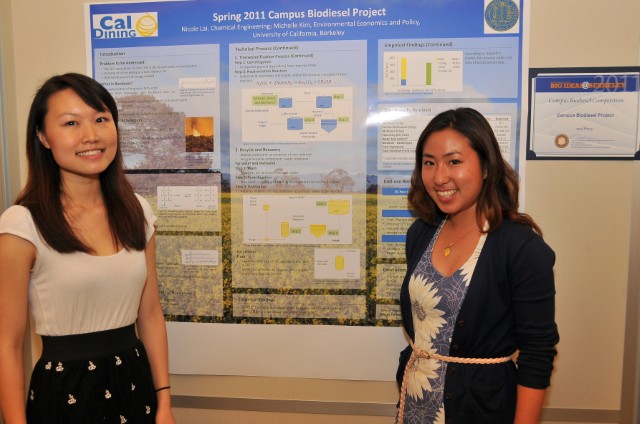 The main objective of this project is to develop an optimal way to improve energy efficiency on the UC Berkeley campus by converting waste cooking oil to biodiesel and then using this biodiesel to power various campus operations. Biodiesel, a type of diesel that comes from biological sources, is biodegradable, non-toxic and produces 60% less carbon dioxide emissions than petroleum-based diesel. Biodiesel can be produced from waste cooking oil. This project advocates for the productive use of the 5,500 gallons of cooking oil waste on the UC Berkeley campus every year. If UC Berkeley’s dining halls each saved the waste oil that they produce into a drum or a large oil container, the oil could then be used to create biodiesel, which can then be used for sustainable campus operations.
The main objective of this project is to develop an optimal way to improve energy efficiency on the UC Berkeley campus by converting waste cooking oil to biodiesel and then using this biodiesel to power various campus operations. Biodiesel, a type of diesel that comes from biological sources, is biodegradable, non-toxic and produces 60% less carbon dioxide emissions than petroleum-based diesel. Biodiesel can be produced from waste cooking oil. This project advocates for the productive use of the 5,500 gallons of cooking oil waste on the UC Berkeley campus every year. If UC Berkeley’s dining halls each saved the waste oil that they produce into a drum or a large oil container, the oil could then be used to create biodiesel, which can then be used for sustainable campus operations.
Lamprey (UC Berkeley)
Laparoscopy is a form of surgery done through a series of small incisions that is becoming the standard for many procedures. Graspers are important tools

